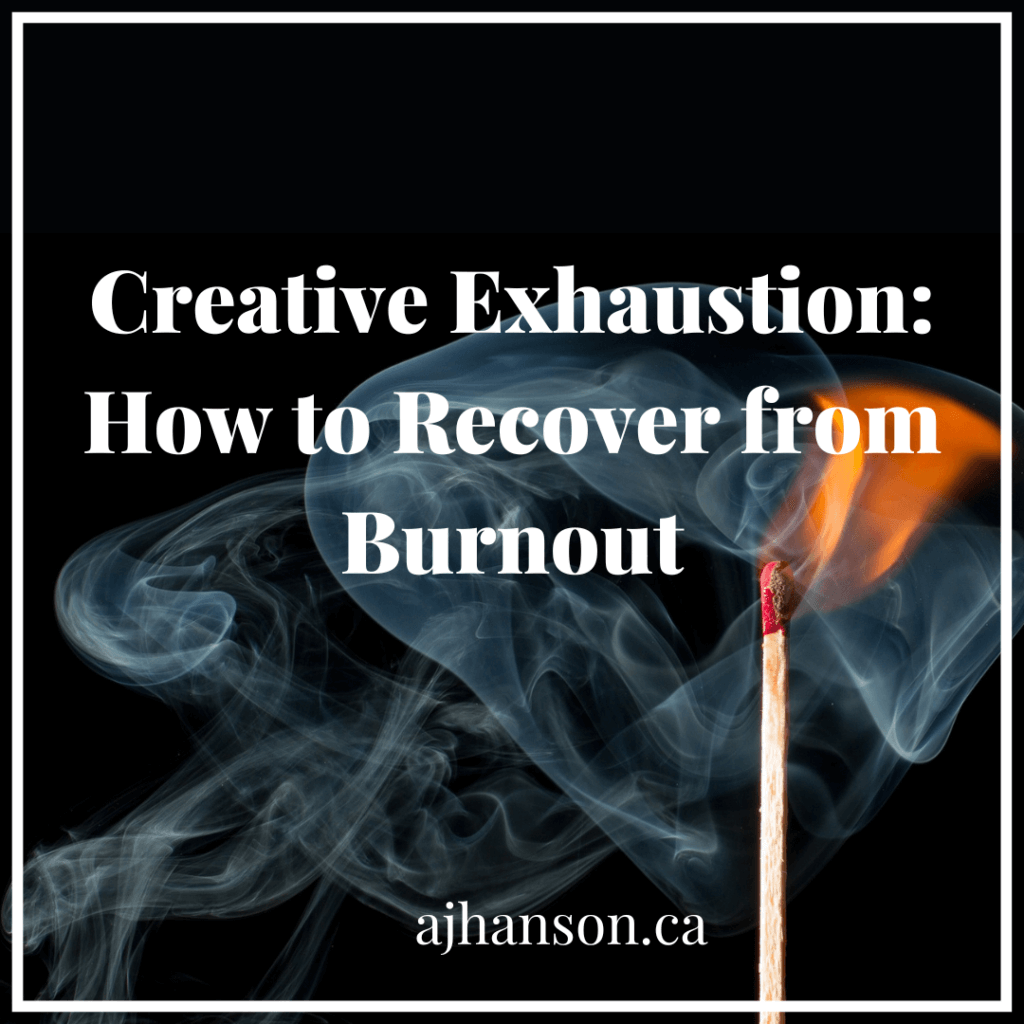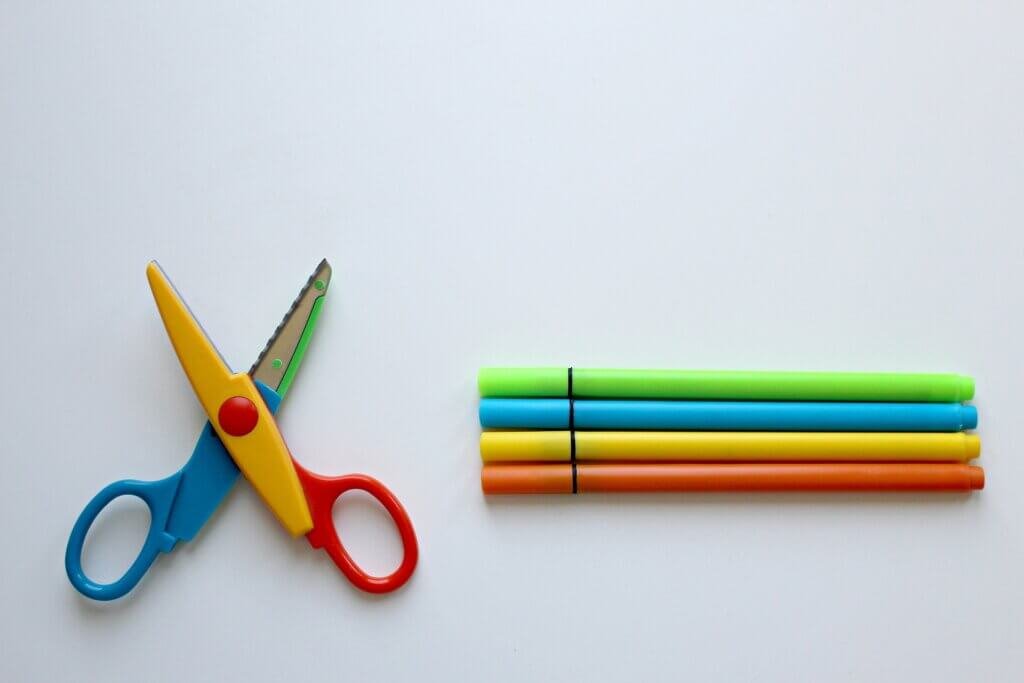Creative Exhaustion: How to Recover from Burnout
The term burnout has always seemed deceptive to me. It provokes imagery of the dying embers of a flame — fading eventually to coals. The term gives the sense that the fire stops.
Congratulations you’ve reached the end of your rope! Now you get to rest and recharge before you hop into the next fire!
But real burnout feels more like drowning at the bottom of a waterfall — the water keeps coming… regardless of whether or not you’ve reached the point most people consider burnout.
How do you claw your way back to the surface and learn to enjoy swimming again?
*apologies for the excessive metaphors there, I was on a roll.*
I recently attended the virtual writer’s conference When Words Collide. Several of the webinars by Sandra Wickham of Fit2Write really resonated with me. She used the term “creative exhaustion” which I prefer to the term burnout (when it comes to creative endeavors). I like this because the term acknowledges the feeling of mental fatigue moreso than a final burn.
So what to do when you experience creative exhaustion or writerly burnout? I am currently climbing out of that hole myself and I will share some of the strategies that have been working for me to get myself back into writing and editing my work in progress.
1. Take care of yourself
This one feels pretty self-explanatory but it is far too easy to let self-care fall to the wayside.
Sandra Wickham made an excellent point that the mind functions better when the body is healthier. Writing will come easier if you take care of yourself. Find an activity you enjoy and get active. Eat healthier.
The other side of self-care is the mental aspect. Be aware of when you spiral into thoughts that prevent you from writing. Thoughts like feeling guilty for taking time to write or feeling like you’re not any good. Acknowledge the thought but move on. Stop the spiral there.

2. Look at your work in a different way
I’ve heard some writers say they print out their work and take scissors and scotch tape to it to see the words in a different way. I haven’t tried that yet but I do find it helps to switch things up.
Try printing out your work to look at it on a physical page – this often helps me to see things I don’t notice when I’m looking at the words on the screen. Cross things out, draw arrows, and get messy in the margins. Sometimes that will help to jumpstart the creative process.
Other things to try are switching to writing with a pen and a notebook if you usually type. Or write in a different room or outside. Maybe you’ll find something new that works for you.
3. Fill your creative well
One method I’ve found to overcome creative burnout is to enjoy other creative works.
Curl up with a good book and read it as a reader (easier said than done but try to take off your author hat if you’re reading to recover from burnout).
During this last burnout, I was too mentally fatigued to even read but I found it helpful to play an immersive game or watch a movie.
Other ways to take in creativity are to enjoy other mediums. Take time to appreciate art or just get outside and be present in nature.
4. Make your writing space welcoming
This doesn’t have to be fancy or Pinterest-worthy. Just make it a place you want to be. For me, this meant cleaning my writing room: picking up the tiny pieces of paper my kids managed to sprinkle everywhere when I gave them kid scissors, and peeling the fifty tiny green circle stickers off the floor.
Now I can walk into my writing space and instead of feeling overwhelmed by other tasks, I’m able to sit down and start writing.

5. Allow yourself to rest
I am notoriously terrible at allowing myself to take breaks. With writing in particular, there’s a fear that if I stop a project to take a break, I’ll never come back to it; it will become just a dusty manuscript lost in the hard drive of my computer.
But a fellow writing friend recently told me that when we are so passionate about writing, we will come back to it, whether that’s in a week or a month or half a year doesn’t matter. Taking a break isn’t the same as giving up.
There’s also a misconception that you’re not a “real writer” if you don’t write every day. The way I see it, everyone has a different process and there is so much more involved in writing than word counts.
Sometimes the best thing for a manuscript is to set it aside for a while and allow yourself to recharge.

6. Embrace the writing community
When you’re ready, embrace the writing community. Fellow writer Em Van Moore wrote this very helpful blog post about how to find your writing buddies. Find other writers and you’ll likely find that even though writing can feel solitary, you’re not alone.
One of the most effective strategies to jumpstart my creativity from this recent bout of burnout was having a support network of other writers. Through the #writingcommunity on Twitter, The Motley Writers Guild and my fellow graduates from The Writer’s Studio, I found a lot of support.
I also attended the When Words Collide writer’s conference and submitted my work for critique by multiple editors. Hearing feedback from other writers and editors allowed me to see my work in a new light and gave me the drive to get back into my manuscript.

7. Simplify
Part of the reason I burnt out was the number of things I committed to. I’m one of those people who loves to say yes to opportunities even if they might not fit into the number of hours in a day. Part of pulling myself out of burnout has been allowing myself to say no or “not right now” to some of my commitments.
Evaluate what you truly value in life, and use that to guide your decisions on what to keep in your life and what to back away from.
It takes time to recover from burnout. So be kind to yourself and trust the process.
Wishing you all the best,
AJ
p.s. Thanks for reading this! If you enjoyed this post, please subscribe for notification of new blog posts or book news.









